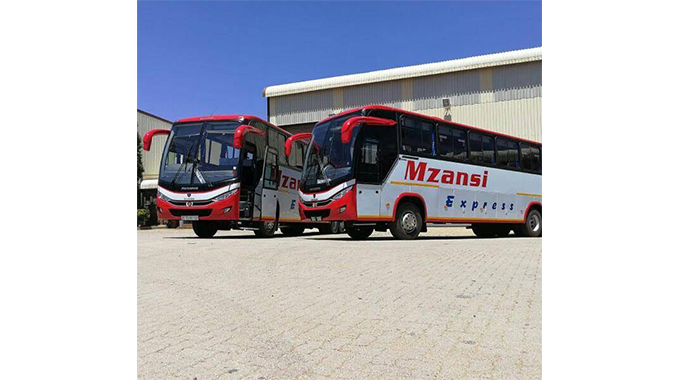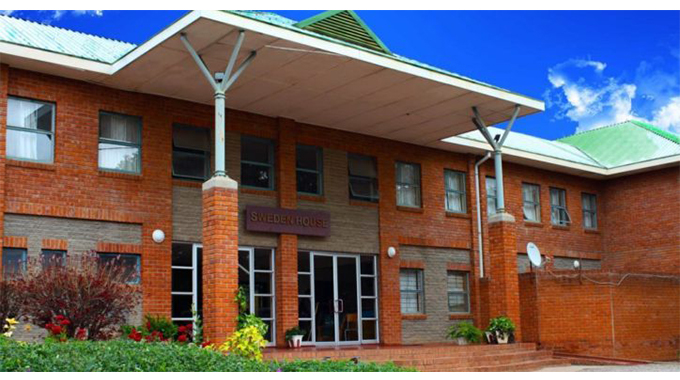The Chronicle

Sukulwenkosi Dube-Matutu, Chronicle Reporter
COMING from a rural background, IT specialist, Mr Ntokozo Ncube has managed to defy the odds through development of software and applications that are being used in several countries across the globe.
His Sadc Open Internet Education Project (SOIEP) application, which he developed under the Internet Society of Zimbabwe, now has over 12 000 users from 12 African countries.
SOIEP is an open internet learning platform which allows students to learn offline using content coming from teachers. It gives pupils access to online learning content at an affordable cost and also allows learners to receive educational content through SMS. It is targeting examination classes.
Mr Ncube also developed a platform known as Enkonzweni which is a church management application. It helps churches to keep track of their registers, finances, budgets and events.
He also developed E Solusi that helps with management of universities. Among other things, E Solusi enables students to interact with banks and attend online classes using the free application.
For the applications that he develops for his employer, he gets a salary and for his personal applications such as Enkonzweni, users pay a subscription. He charges institutions and organisations that he develops applications for.
Recently, Mr Ncube was a lead developer of the Digital Educational Empowerment Programme (DEEP) which is being implemented in Matabeleland North and South.
DEEP is an education empowerment platform that enables schools to share educational content and access the internet using a local network.
Users can search for content and access content in local languages. Schools that are connected to the server can upload educational content onto the platform.
 Mzansi Express
Mzansi ExpressMr Ncube said his other innovations include booking applications for Mzansi Express and Revival Motorways.
He has also developed student management systems for Bulawayo Adventist High School and Zambian schools and colleges among other applications.
Growing up in his rural home in Mbizingwe area in Umzingwane, Mr Ncube said he always aspired to be a teacher. He attended Mbizingwe Primary School and Nsezi Secondary School.
He said when he moved to Bulawayo after completing his secondary education, he realised that there were many career options that he could explore.
“I grew up in a rural set up and my daily routine involved going to school and doing the routine chores such as herding cattle, fetching firewood and working in the fields. The only professional people I could see were the teachers that taught us hence my aspiration to become a teacher,” he said.
“When I moved to town after completing my secondary education, I developed a liking for IT. I did not go to A-level so I managed to get into Solusi University using a mature age entry when I was 25. The more I worked as a programmer, the more I desired to develop content and learning platforms that could be accessible even to the rural child and broaden the scope of that child.”
 Solusi University
Solusi UniversityMr Ncube, who is employed as an Information Communication Technology manager at Solusi University and officer in charge of infrastructure and technology under Internet Society Zimbabwe Chapter, said he came up with the idea to develop SOIEP after the learning process was disturbed by the Covid-19 pandemic.
“I knew that some students would face challenges in accessing online lessons because of data,” said Mr Ncube.
“Some children, especially in the rural areas, stay with guardians that don’t have smartphones. I then came up with the application that allows learning to continue through SMS or USSD. The platform allows one to download content and learn offline.”
Mr Ncube said he had initially developed the platform for Zimbabwean, South African and Zambian learners but once it went online, people from other countries started subscribing.
He said under the application teachers upload content for examination classes and students sign up and start learning.
Mr Ncube said teachers are being paid to load content for learners.
He said developed the Enkonzweni platform to provide churches with an easier way to manage their churches.
“Another application which is my brainchild is E Solusi. It’s an environment where students can interact with banks, make payments, do their registration of courses, access their results online. It allows them to receive communication from the university through SMS and WhatsApp online classes using a free application unlike Zoom. Other institutions developed an interest in the platform and we have shared it with them. The applications that I developed are available on GitHub. Normally when I develop an application, I make it open so that people can download and use. I’m finding that a number of people are using my applications,” he said.

Mr Ncube said a number of countries were using his applications including Mauritius, Zambia, Malawi, Mozambique, South Africa, Botswana, Namibia, Netherlands and Iceland.
Mr Ncube said he has a passion for education and the country needs to be rich in education not only in terms of literacy but an education that will allow graduates to implement and apply solutions to communities and bring about change.
He said a number of schools have computers and need content and products on the gadgets which edifies learners.
Mr Ncube said he gets his inspiration on developing software from problems around.
 Computer-Image taken from Shutterstock
Computer-Image taken from ShutterstockHe said after identifying a problem, he conducts a requirement analysis where he identifies what is required to address the problem and the desired output.
“In software development, the goal is to come up with a method to do things easier, faster and better then from there you do the coding. You have to come up with a requirements analysis document which tells you exactly what you need to do. It acts like a roadmap — it states the deliverables, how the system will run, what platforms will be needed as well as other issues. When developing the system, you also have to consider who is going to benefit and then you decide whether your system will be web based or a mobile app depending on the gadgets which the users have,” he said.
In 2010, Mr Ncube attained a Bachelor for Business administration in Computers and Information Management Systems from Solusi University.
He later attained Master of Business Administration from Solusi University and a Master of Science in Computer Science from the National University of Science and Technology.
In 2018, he attained an Advanced Post Graduate Diploma in Cyber Security from the National Institute of Technical Teacher’s Training and Research (NITTTR) in Chennai, India. – @DubeMatutu.
Article Source: The Chronicle
